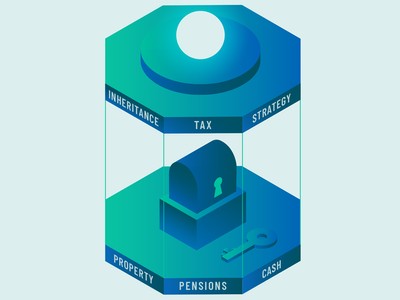Have you considered a trust?
Trusts may be used in conjunction with other IHT planning measures, such as gifting of surplus income.
The use of trust structures can yield substantial benefits but need not be reserved solely for the use of nobles. Typical trust structures employed for IHT purposes include:
- Discretionary Trust
- Absolute/Bare Trust
- Discounted Gift Trust
- Loan Trust
The appropriate trust solution depends on individual requirements, such as:
- The need/desire to retain access to income and/or capital from the trust;
- The ability to make large trust contributions (i.e. in excess of the £325,000 nil rate band) without incurring an immediate tax charge; and
- The flexibility to alter the beneficiaries of the trust.
How can Business Property Relief shelter assets from IHT?
Business Property Relief (BPR) was introduced in the 1970s, initially to help owners of family businesses keep it in the family as the business passed through the generations.
Shares held in BPR qualifying companies can be left to beneficiaries free from IHT, provided they have been held for at least two years at date of death.
Importantly, some of the shares that trade on the Alternative Investment Market (AIM), a sub-market of the London Stock Exchange, as well as the NEX Exchange Growth Market qualify for BPR.
Whilst investing in a BPR qualifying portfolio via either of these two markets carries higher risk characteristics than other IHT strategies, the speed at which IHT exemption is gained can offer benefits over a traditional gifting strategy. Additionally, assets are not locked up and can be accessed any time, so if circumstances change you can withdraw your funds, subject to the liquidity of the underlying investments, albeit without qualifying for BPR.
Refocusing on pensions
Pension reforms have made it more attractive to pass on retirement savings. From 6 April 2015, wealth accumulated within pensions can cascade down the generations – or to anyone else of your choosing.
Under these rules, if an individual dies before age 75, any pension benefits that are left to beneficiaries may be taken tax-free as an income or lump sum. Your beneficiaries may even opt to keep the funds invested in a pension wrapper. For death after age 75, the pension proceeds will be taxed as earned income of the recipient, which can be carefully proactively managed from a tax perspective.
Using insurance proceeds to fund your IHT liability
Insurance policies, such as whole-of-life contracts, can also be used to fund IHT liabilities. Once the IHT liability has been calculated, a policy can be written to provide for the expense. Policies are generally best structured within a trust where the proceeds are free from IHT.
Whilst this strategy can be quite simple to understand, the cost of the premiums and underwriting requirements may provide some limitations.
The points made in this article are for illustrative purposes only and if you require any assistance with any of the above opportunities in relation to your personal circumstances, contact your investment manager who can make an introduction to our specialist wealth planning team.
It is important to note that JM Finn is not a tax adviser and where tax advice is required, we would look to work with your existing advisers or refer you to a trusted external tax specialist.
Action Points
- We would encourage you to review your current Will and Lasting/Enduring Power of Attorney to ensure that the arrangements continue to reflect your wishes.
- You should contact pension provider(s) to ensure that you have an ‘expression of wish’ for each of your pension plans which reflects your wishes on death.
- Take specialist advice on the best course of action to follow in order to provide your beneficiaries with the legacy you want.
Anna Murdock, Head of Wealth Planning
The information provided in this article is of a general nature. It is not a substitute for specific advice with regard to your own circumstances.




